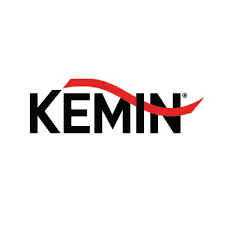2012 in Review: Tech & Innovation


Iowa began positioning itself to cultivate the next generation of the work force in science, technology, engineering and mathematics (STEM) with the creation of Gov. Terry Branstad’s STEM Advisory Council.
Year one of the initiative was about setting the framework, said Jeff Weld, executive director of the council. It identified eight targeted priorities, each with a dedicated working group, and created 19 recommendations for reforming STEM education in the state.
In October, Weld and Lt. Gov. Kim Reynolds announced that more than 800 Iowa schools and community organizations will participate in “scale-up programs.” The council is taking 12 programs that have worked in individual schools and expanding them essentially statewide.
The number of STEM-related jobs is expected to increase in the next five years, so Iowa needs students coming out of its schools ready to go into those fields.
“I am truly convinced that we’re going to get one shot to do this well,” Weld said. Read full story

Central Iowa businesses have plenty of technology jobs but say they have trouble finding qualified workers to fill them.
“There is a tremendous shortage (of tech workers),” Leann Jacobsen, president of the Technology Association of Iowa (TAI), told the Business Record in November.
Reasons for the shortage range from a lack of women and minorities going into tech fields, to the number of tech sector jobs growing and not enough qualified applicants coming out of Iowa’s education system.
Businesses and tech leaders are looking for solutions, both short-term and long-term. At a macro level, it’s about making sure that more students, know from a young age, the opportunities that exist in technology and that they come out of college with necessary skills.
More immediately, TAI, member businesses and the Greater Des Moines Partnership are trying to make sure that recent college graduates know about the good jobs in Central Iowa, and companies are trying to find ways to train workers for positions that need to be filled. Read full story

Technology sector leaders told the Business Record in February that more investment is needed in tech startups, especially in the early stages. They took a step toward alleviating that problem late in the summer when Plains Angels was launched. Christian Renaud, a principal at StartupCity Des Moines, and Mike Colwell, executive director of the Business Innovation Zone, designed the group to create a meeting place between “angel” investors and startups that need capital.
About 75 people attended the group’s first meeting in June to see two companies pitch their product. One of those companies attracted investment within nine days. Read full story

It’s not news that technology is changing, and that things such as email, instant messaging and social media are, in some ways, replacing in-person conversation or talking on the telephone. But how are businesses coping with new ways of communication?
Just fine, for the most part, local companies told the Business Record.
The pros: Work environments are becoming increasingly mobile. Workers can more easily collaborate across time zones, often with high-tech, but easy-to-use video technology. They can also keep in touch with clients and co-workers while on the go.
The cons: messages getting lost in translation. “I think it’s pretty easy, through tone and unintended consequences, for something that somebody doesn’t mean to say to become a bigger issue,” said Doug Olson, executive vice president at Meredith Corp. Read full story

Dwolla Inc. made a big splash in February when it announced a $5 million fundraising round, and another one in April when it revealed that Iowa-born actor Ashton Kutcher was one of the funders.
But the best news for Des Moines’s startup community about the mobile-phone payment company was that founder Ben Milne committed to keeping the company in Des Moines.
Often, venture capital companies, such as Union Square Ventures, Dwolla’s lead investor, will require companies to move to one of the coasts as a condition of funding. Not so with Dwolla.
“Our team is here, their families are here, everybody’s jobs are here, their homes are here,” Milne told the Business Record in February. “It doesn’t make any sense to uproot all of that just for the sake of moving it.”
The decision to stay in Des Moines was good for the startup community in a couple of ways. One, Dwolla has been held up as an example and model of a successful startup in Des Moines, and two, it shows that the global investment community is comfortable investing in Des Moines companies and allowing them to stay in Des Moines.
“I think it’s a huge statement for Des Moines,” said Mike Colwell, executive director of the Business Innovation Zone. “I don’t think we can overestimate how huge of a statement it is, that one of the biggest venture firms in the country just sank a lot of money into a local company here and said, ‘We’re OK with you staying in Des Moines.’” Read full story











